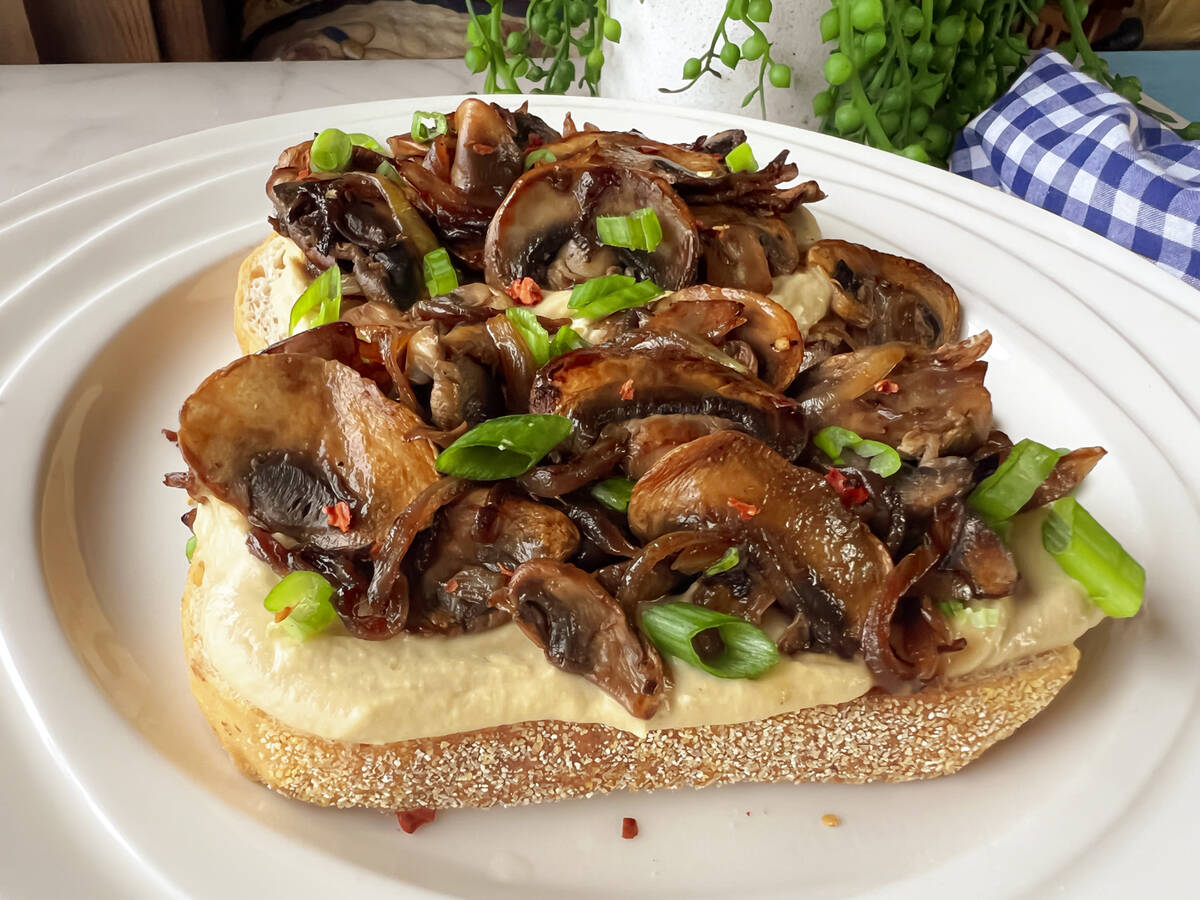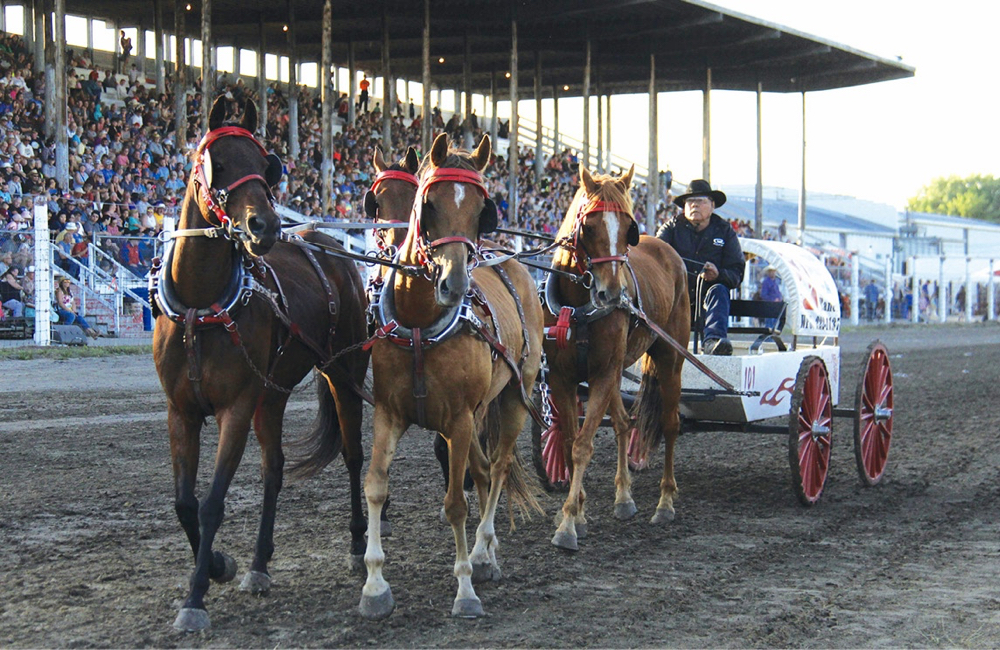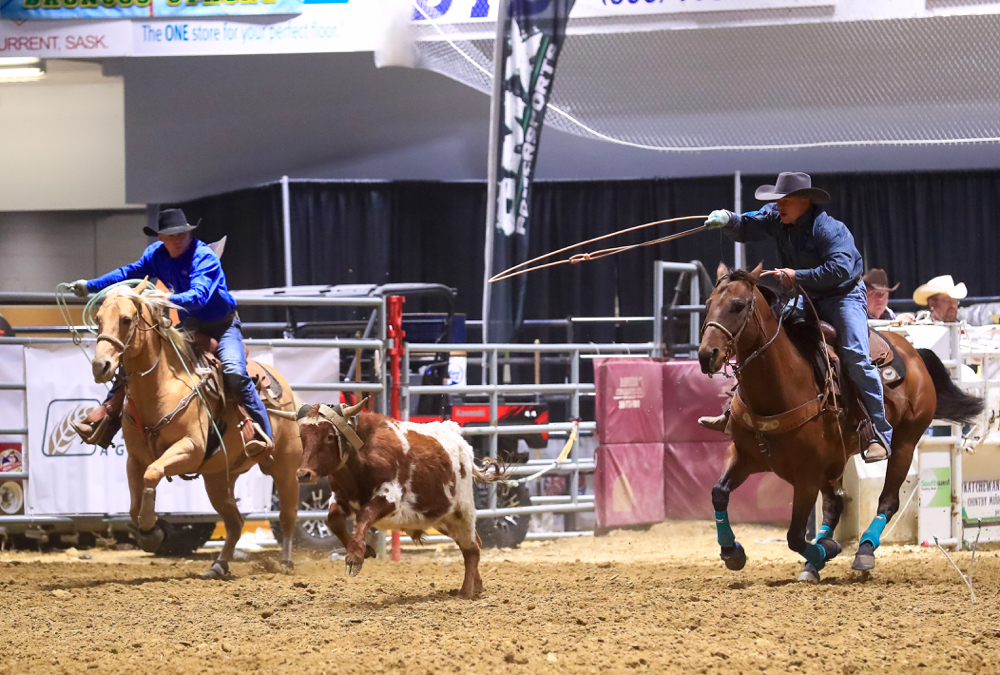The atmosphere at the fairgrounds in Miami, Man., June 25 was familiar to any rural kid — but it’s been in short supply for the last two years.
In front of the community hall, overflow parking spilled onto the grass. Livestock trailers dominated the back half of the grounds. Off to the side, a woman practiced her roping arm on straw bales.
Read Also

Use-it-up meals stretch the post-holiday menu
Leftovers and extra food abound in the first weeks of January. Give your kitchen a winter reset, clean out the fridge and save on your grocery bill
Cattle were lowing next to the show ring and a faint scent of fried food, horses and manure lingered in the air.
In the grandstands, visitors toting face-painted kids looked down on rodeo preparations. Long-horned roping calves were moved into position. Competitors warmed up.
In the background, bucking stock waited in pens for a moment in the spotlight — the blast of heavy metal band AC/DC, the pull of a gate and an eight-second clock.
For the first time in years, it was fair day.

The small-town ag fair is a staple for many communities and their ag societies. For the first time since the start of the pandemic, Manitoba’s schedule this summer is full.
The Heartland Rodeo Association made its grand return in Miami June 25-26, while also marking the start of its 25th anniversary season that was delayed due to COVID-19. The two-day fair and rodeo was the first of what is a planned nine-stop schedule for the 2022 season, with events slated for Vita, Eriksdale, Gilbert Plains, Arborg, McCreary, Richer, Roblin and Teulon.
“Everybody’s pumped and ready to go,” long-time competitor Brad Middleton said on the morning of the rodeo, noting the entry list appeared full.
“There’s lots of things going back on now that everything’s opened up again,” he said. “(The pandemic) is going to take a few people away, but I think a lot of them are going to try and make it.”

It is one example of the rodeo circuits, 4-H clubs, horse shows and small-town fairs looking to regain their stride since the sudden halt to large in-person events since spring 2020.
Fairs sprung up province-wide in the last few weeks of June and into July, including Miami, Killarney and Treherne. Carberry saw the return of its three-day fair over the Canada Day weekend. To the north, the North Interlake Show Circuit had planned its first horse show for the Lundar Fair June 10-11.
Communities with fairs and rodeos further into summer are looking to drum up excitement. The same general message appeared on ag society Facebook pages and websites across the province: “We’re back.”
“The fair and rodeo is very important to us,” Miami Ag Society treasurer Jan Moody said June 25. “It’s important to our community too, and it has been sadly missed, but if you walk around the grounds today and see the number of people, the number of young families, Miami Ag Society really promotes this as a country, family event…you can see that people really get that.”
Weathering the storm
To put it mildly, the last two years have been an ordeal for rural Manitoba ag societies. Fair grounds, usually an income driver for those organizations, have mostly sat empty due to restrictions on social gathering.
In Carberry, ag society president Alan Christison said that not only did the annual fair disappear, but income from fairground rentals also ground to a halt. The Carberry Agricultural Society had to trim maintenance operations to the bare minimum in response. The ag society “just kept the grass cut,” and didn’t take on capital projects, he noted.

“It’s been very quiet, would be the easiest way to put it,” he said. “Basically, our fundraising, our revenue streams really dried up.”
Back in Miami, the local fair grounds fared better. Moody said that while the fair itself was cancelled, the grandstands remained a destination for some events during the pandemic, including the Manitoba Harness Racing circuit.
The community in south-central Manitoba has become one of the last rural stops for the sport, with tracks in Holland, Glenboro, Killarney and Morris dropping off the schedule in recent years.
“We were lucky to have the harness racing circuit run out of Miami for two years,” Moody said. “We had very strict Manitoba health regulations to follow and the crowds were smaller and we were able to manage it, but it is so great to be able to be back, doing all of our events.”
Another boon came in the form of private sponsorship from local business, Moody noted.
Bridge grants, introduced by the province in the wake of the pandemic, also shouldered some financial burden. The program offered funding for organizations including ag societies.
“I don’t want to say (it) saved us, but it took a lot of the stress off,” Christison said. “We came out of it a lot better than I thought we would have. If it wouldn’t have been for that, we would have been in big trouble. I think we would have survived, but it would have been tough.”

Hungry for competition
Individual rodeo competitors and 4-H clubs faced another set of challenges.
The same restrictions that took fairs off the schedule also made it difficult for clubs to provide members with the show and sale skills normally inherent in membership, said Andre Steppler of the Miami 4-H Beef Club.
Shows at small town fairs are critical to give members experience before entering larger shows with bigger stakes, he noted. They also acclimate animals to the ring and the crowds that come with it. Miami, in particular fills that function, given its early slot on the calendar.
“It’s a nice halter-breaking session for them,” Steppler said. “But it’s also just adding that experience.”
The show ring saw six 4-H clubs participate at the Miami Fair and Rodeo June 25-26.
For rodeo athletes, lack of competition forced them to seek other options to keep skills sharp.
“Lots of people were doing their own thing, roping at home,” Middleton said.
“The up and coming (generation), they’re very competitive. They’re out to do their personal best.”

His farm became a destination for some athletes looking for roping practice, he noted.
Despite restrictions, 4-H clubs and rodeo associations were able to hold limited sales or other socially distanced events, such as barrel racing events in Carman.
“We found ways to make it happen,” Steppler said. “Last year, we couldn’t have in-person events, so we still hosted an online sale… At that time, the restrictions were loosening up just a little bit, so we were able to have just buyers and a few people at it.”
A more recent hurdle has come in the price of gas. Hauling livestock trailers across the province has become more expensive, with gas prices topping $2.07 a litre for weeks.
Thinning of the ranks
But the road to recovery goes beyond the bank account.
Two years of restriction left gaps on their board, including the loss of the ag society’s light horse director, Christison said. While most aspects of the fair returned full throttle — chuckwagon races, the potato truck pull and the CancerCare Manitoba fundraiser — the ag society had to forego the horse show.

Even with that loss, Christison said the fair is larger than expected.
“Locally, there’s a really good sense of excitement. People got used to staying home and not going out, but we’ve got good volunteer support and lots of people are talking about it.”
Excitement
Visitors to the Miami Fair and Rodeo experienced much the same agenda as pre-pandemic, although, as in Carberry, the light horse show fell by the wayside.
In its place, the ag society added a miniature horse show, which Moody said they hope to build on.
“It’s good to bring something new to the plate, so that’s good,” she said. “All these things have a huge impact on our community… We’ve got an event in our own community. We’re proud to show off our community.”

















